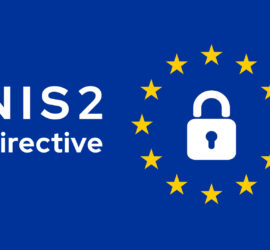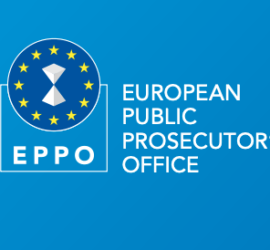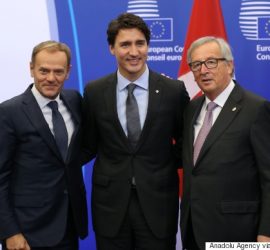By Maria Lucia Passador I. Executive Overview and Legislative Purpose In today’s economy, digital trust is capital. Yet it is eroded daily by ransomware and supply-chain breaches. Europe’s response is Directive (EU) 2022/2555—better known as NIS 2—the most ambitious cybersecurity framework ever enacted. NIS 2 marks a turning point: it moves cybersecurity from the server room to the boardroom. Replacing and expanding the original NIS Directive, it widens the range of covered sectors, strengthens risk-management and reporting obligations, and arms regulators with sharper supervisory and enforcement tools. Its legislative purpose is unmistakable—to end the patchwork of national regimes that left […]
Preliminary Reference
By Diksha Singh On 1 August 2025, the European Court of Justice delivered its ruling in Royal Football Club Seraing v FIFA (C-600/23), a decision that marks a constitutional turning point for sports arbitration within the European Union (EU). For professional athletes, this means disciplinary or transfer disputes can no longer be insulated from EU law oversight. Where the final decisions of sports tribunals clash with the EU’s basic guarantee of effective judicial protection, they must yield. Far from a narrow ruling about football, Seraing reverberates across the wider landscape of private dispute resolution. Its reasoning could reshape arbitration in […]
By Muhammad Siddique Ali Pirzada Introduction Across Europe, femicide committed by intimate partners or family members has shown a stubborn persistence. Since 2010, progress has been slow at best, and in certain regions, like Eastern Europe, the statistics remain static. In 2023, above 50% of all murdered women were killed by someone within their domestic circle. These figures are not anomalies, they reflect enduring structural and societal failures that normalize and perpetuate gender-based violence. Domestic violence is a gendered phenomenon, both in its execution and with the institutional inertia that often meets it. Still, the European Court of Human Rights […]
By Aleydis Nissen* In February 2024, during the final stages of adopting the EU Corporate Sustainability Due Diligence Directive (CS3D)—a flagship directive imposing human rights and environmental obligations on large companies in their global value chains—the United Nations High Commissioner for Human Rights, Volker Türk, warned that failure to pass the directive would be a “massive blow.” Fast forward to February 2025, and that blow has been delivered by the Ursula von der Leyen Commission II through an omnibus package aimed at “simplifying” the adopted CS3D in the name of “competitiveness”. The package calls for “far-reaching simplification” of CSRD, aligning […]
By James Marson and Katy Ferris* Can a driver of a vehicle transition to become its passenger during a journey if another passenger assumes control of the vehicle? Interestingly, the Motor Vehicle Insurance Directive (MVID) 2009/103/EC— the legislative framework governing compulsory motor insurance and civil liability across the EU—does not explicitly define the term “driver.” Instead, its provisions and case law predominantly refer to the “use of a vehicle.” This lack of definitional clarity leaves significant questions unanswered. Here we present the first analysis of this issue, highlighting that determining whether a driver becomes a passenger is primarily a factual […]
By Davide Genini On 10 September 2024, the European Court of Justice (ECJ) delivered a landmark judgment in KS and KD v Council. This blog post explores the ECJ’s judicial authority over CFSP matters in light of this pivotal decision, highlighting its potential impact on the broader European integration process. It argues that by extending its jurisdiction in CFSP via the political question doctrine, the Court has made a significant step towards deeper EU integration, though the challenges this poses should not be underestimated. I. Introduction In response to human rights violations that occurred during the execution of EULEX Kosovo […]
By Alexandros Kazimirov The creation of the European Public Prosecutor’s Office was a thirty-year effort to balance national sovereignty with supranational authority. Yet, just two years after its launch, the agency’s expanded role is an unintended consequence of everything that occurred during its establishment. Specifically, the expansion of the European Union’s budgetary base is set to fundamentally transform the Office’s caseload. But a transformation in scope requires structural reforms as well. This post outlines how a recent surge of investments in defense and energy presents an opportunity to reform the Office into an independent enforcement agency capable of delivering meaningful […]
By Mauro Fragale and Valentina Grilli* The Deepfake Dilemma: Legal Implications of AI-Generated Content In July, X (formerly Twitter) CEO Elon Musk shared a parody Kamala Harris campaign, in which the candidate for the United States (US) presidency – or rather, an AI-manipulated version of her voice – exposed herself as an incompetent, token candidate. The incident intensified an ongoing global debate about AI-generated misinformation, particularly as it affects important elections. Just a year ago, European Union (EU) institutions voiced their worries for this increasingly diffused phenomenon: in the wake of Russian efforts to undermine public opinion and influence citizens […]
By Fathima Rena Abdulla Much has been said about equality in the context of access to “consumption” of technology through discourses on net neutrality and the digital divide (see, most recently, §§ 9-12, 78th Session UNGA, Item 85, Report of the Secretary-General). The discourse on equal access to ownership of technology has been comparatively limited. Spectrum allocation policies are especially important, as they provide one of the few ways to own the means to produce or create technological content. As Europe strives to ensure equitable access to digital technologies, exemplified by Principle 12 of the European Declaration on Digital Rights […]
By Afrah Abdul, law student at the National University of Advanced Legal Studies, Kochi Introduction Year 2022, P&O Ferries sent shockwaves through the UK labour market by abruptly dismissing nearly 800 seafarers without notice or consultation. This unprecedented move not only disrupted vital shipping routes but also ignited a fierce debate about the adequacy of UK redundancy laws in protecting workers’ rights. The case exposes significant gaps in UK redundancy laws and challenges the effectiveness of current employee protections, necessitating a re-evaluation of the legal framework in a post-Brexit context. Background of the P&O Ferries Case On March 17, 2022, […]
By Ibrahim Ati On September 8, 2023, the Belgian Court of Cassation initiated a radical shift in established arbitration law by challenging the sovereignty of the Fédération Internationale de Football Association (FIFA) and other sports governing bodies when their awards intersect with European Union (EU) law.[1] This move will likely ignite a profound reconsideration of the enforceability and recognition of Court of Arbitration for Sport (CAS) awards within the EU’s legal framework when based even partly on European law elements. At its heart, the pivotal query, for which the RFC Seraing and its legal representatives advocated for years across multiple […]
By: Dr. Aleydis Nissen, Leiden Law School and the Free Universities of Brussels In 2010, the United States created two highly innovative legal obligations to ensure corporate respect for human rights. This post explains that not much is left of these obligations nowadays, and directs the reader to my new book to learn more about how the United States has inspired the European Union to adopt similar regulations, but with more impact. Even before the United Nations Guiding Principles on Business and Human Rights were adopted in 2011, the United States had already innovated in the field of business and […]
By: Daron Tan, LL.M., Columbia Law School, 2018 I want to extend my gratitude to Professor Nicholas Bamforth for his comments on an earlier draft of this piece. All errors remain my own. I. Introduction The European Court of Human Rights (“ECtHR”) has been increasingly willing to recognize the positive duties of States and public authorities to realize the right to equality that is protected by Article 14 of the European Convention on Human Rights (“ECHR”). This development has been most noticeable in the areas of indirect discrimination, parental rights, and gender-based violence. However, this development in the Article 14 […]
By Theodore Chua, J.D. Candidate 2018, Columbia Law School I. Introduction With the modernization of databases and search engines, information seemingly lost in a sea of information can be retrieved almost instantaneously. Due to the value of analyzing personal data (e.g. for the purpose of understanding voter demographics or consumer groups), legislatures are alive to the need for data protection laws regulating how personal data can be processed or transferred. Paving the way forward, the EU (then the EC) in 1995 enacted a single data protection law—the Data Protection Directive (the “Directive”)—to establish uniform data protection standards across member states. […]
By Abigail Hopper, J.D. Candidate 2018, Columbia Law School The European Court of Justice (ECJ) took a step toward clarifying the antitrust implications of loyalty rebates offered by dominant firms in its Intel decision released on September 6. The decision rejected the interpretation of the General Court (GC), which ruled that Intel’s loyalty rebates were illegal per se because they were conditioned on exclusivity. The ECJ clarified that although rebates conditioned on exclusivity were presumed to violate Article 102 TFEU, the presumption is just that – a presumption. A firm offering exclusivity rebates can rebut the presumption by showing evidence […]
By Emily Hush, J.D. Candidate 2018, Columbia Law School I want to extend my sincere thanks to Professor Michael B. Gerrard of Columbia Law School and Professor Matthew Scott of Lund University Faculty of Law for their invaluable assistance on this project. All errors are my own. I. Introduction The displacement of persons due to environmental disasters exacerbated by climate change has already begun. The flow will continue to increase throughout the course of this century. Despite this growing population of migrants, the world has no legal framework in place for their reception and protection. Sweden and Finland used to […]
Jens Dammann, William Stamps Farish Professor in Law, the University of Texas School of Law.* Note: This full-length Article appears in Volume 23, Issue 2 of the Columbia Journal of European Law, available soon in print and online via HeinOnline, LexisNexis, and Westlaw. Introduction On June 23, 2016 U.K. voters did the unthinkable and voted, by a narrow margin, for the United Kingdom to leave the European Union.[1] Such a move is entirely legal. The Treaty on European Union explicitly gives Member States the right to withdraw from the European Union.[2] Nonetheless, the outcome was unexpected.[3] Most pundits had predicted a victory for […]
Joanna Diane Caytas, JD Candidate, Columbia Law School 2017 As robots, machine learning, and intelligent automation shape ever more areas of our lives and jobs, many assume that, because machines have been around since centuries, laws applicable to robots will just require some well-adjusted analogies. But they would be wrong, and the need for a Law of Robotics is becoming increasingly more evident. Yet, the ideas proposed to get this started are mired in controversy. Human labor has been substituted most effectively by machines for well over two centuries now, and quasi-Luddite warfare against technology has been around just as long. […]
By Emily Hush, J.D. Candidate 2018, Columbia Law School It is no secret that the planet is warming and that humans had something to do with it. Over the last 150 years, the global average concentration of carbon dioxide in the Earth’s atmosphere has increased to unprecedented dangerous levels and it continues to rise. As the climate becomes warmer, the world faces ocean acidification, sea level rise, decreasing biodiversity, and more extreme weather events. Sustainable development that “meets the needs of the present without compromising the ability of future generations to meet their own needs,” is central to the international […]














